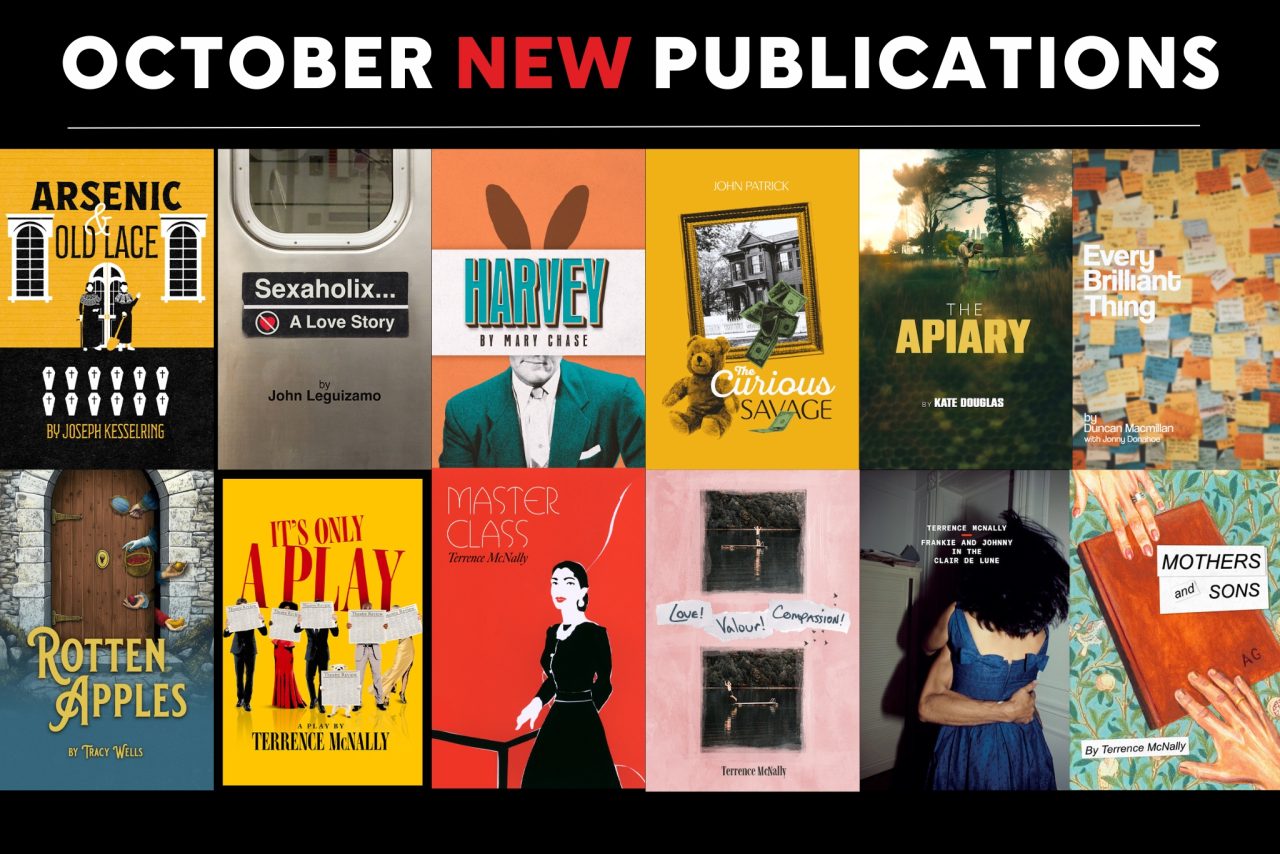Plays
Sexaholix… A Love Story by

John suffers through years of his parents’ fighting, and when they finally divorce, he moves in with his grandparents. Which is, it turns out, not the ideal escape he thought it would be, and soon he realizes he needs to get out of there, too. Hilariously following his sexual awakening and the trials of his love life, Sexaholix… A Love Story finds John searching for the right match, whether he knows what that is or not.
The Apiary by
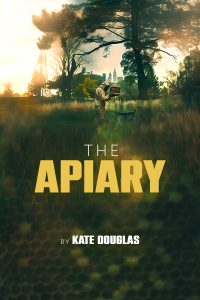
It’s twenty-two years in the future, and honeybees are nearly extinct except for those kept alive inside of labs. Zora is overqualified for her new job at one of these labs, but she’s there because she loves bees—or what is left of them. Her stressed supervisor, Gwen, has learned to keep her head and budget down so her research doesn’t get discontinued. Zora, however, doesn’t mind spending her own time and money to try to rehabilitate the bee population. When an unfortunate incident leads to a boost in the bees’ numbers, Zora and her coworker Pilar have to decide just how far they’re willing to go to keep the population growing. An unsettling and sharp-witted cautionary tale, The Apiary warns that the key to protecting each other and the planet is right in front of us, if only we would listen.
John Proctor Is the Villain by
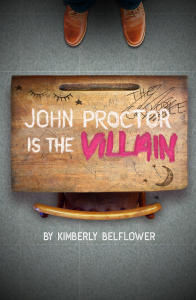
At a high school in a one-stoplight town in Georgia, an English class is studying The Crucible but the students are more preoccupied with navigating young love, sex ed, and a few school scandals. As the students delve into the American classic, they begin to question the play’s perspective and the validity of naming John Proctor the show’s hero. With deep wells of passion and biting humor, this comedy captures a generation mid-transformation, running on pop music, optimism, and fury, discovering that their future is not bound by the past and that they have the power to change it all.
Rotten Apples by Tracy Wells
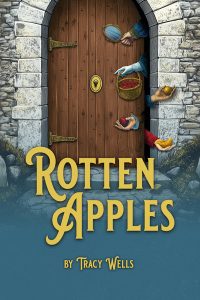
A group of villains—including the Evil Queen, Wicked Stepmother, and the Big Bad Wolf—and some familiar faces with dubious morals— like Little Red Riding Hood and Pinocchio—are locked in a mansion on a dark and stormy night. Their only means of escape is helping Prince Charming figure out the name of a mischievous imp who has his eyes set on a gasp-inducing treasure. As they begin to unravel the mystery before the midnight deadline, the storm knocks out the power in the mansion, and in a twist, some of the guests get knocked out, too. Will anyone be left to crack the riddle of the imp’s name and escape? Or will a parade of surprise guests only make matters worse as even more beloved characters become victims to the unknown assailant? With three endings to choose from, the mystery is yours to solve!
Signature Acting Editions
Arsenic and Old Lace by
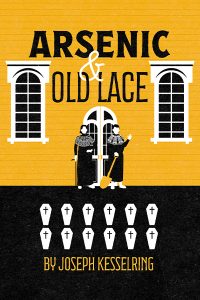
Drama critic Mortimer Brewster’s engagement announcement is upended when he discovers a corpse in his elderly aunts’ window seat. Mortimer rushes to tell Abby and Martha before they stumble upon the body themselves, only to learn that the two old women aren’t just aware of the dead man in their parlor, they killed him! Between his aunts’ penchant for poisoning wine, a brother who thinks he’s Teddy Roosevelt, and another brother using plastic surgery to hide from the police—not to mention Mortimer’s own hesitancy about marriage—it’ll be a miracle if Mortimer makes it to his wedding. Arsenic and Old Lace is a classic black comedy about the only thing more deadly than poison: family.
Harvey by
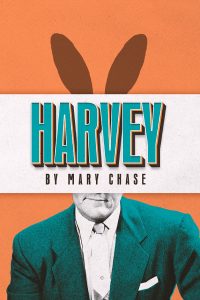
Winner of the 1945 Pulitzer Prize for Drama
Elwood P. Dowd insists on including his friend Harvey in all of his sister Veta’s social gatherings. Trouble is, Harvey is an imaginary six-and-a-half-foot-tall rabbit. To avoid future embarassment for her family—and especially for her daughter, Myrtle Mae—Veta decides to have Elwood committed to a sanitarium. At the sanitarium, a frantic Veta explains to the staff that her years of living with Elwood’s hallucination have caused her to see Harvey also, and so the doctors mistakenly commit her instead of her mild-mannered brother. The truth comes out, however; Veta is freed, and the search is on for Elwood, who eventually arrives at the sanitarium of his own volition, looking for Harvey. But it seems that Elwood and his invisible companion have had a strange influence on more than one of the doctors. Only at the end does Veta realize that maybe Harvey isn’t so bad after all.
Steel Magnolias by

The action is set in Truvy’s beauty salon in Chinquapin, Louisiana, where all the ladies who are “anybody” come to have their hair done. Helped by her eager new assistant, Annelle (who is not sure whether or not she is still married), the outspoken, wise-cracking Truvy dispenses shampoos and free advice to the town’s rich curmudgeon, Ouiser, (“I’m not crazy, I’ve just been in a bad mood for forty years”); an eccentric millionaire, Miss Clairee, who has a raging sweet tooth; and the local social leader, M’Lynn, whose daughter, Shelby (the prettiest girl in town), is about to marry a “good ole boy.” Filled with hilarious repartee and not a few acerbic but humorously revealing verbal collisions, the play moves toward tragedy when, in the second act, the spunky Shelby (who is a diabetic) risks pregnancy and forfeits her life. The sudden realization of their mortality affects the others, but also draws on the underlying strength—and love—which give the play, and its characters, the special quality to make them truly touching, funny and marvelously amiable company in good times and bad.
Every Brilliant Thing by Duncan Macmillan, with Jonny Donahoe

You’re six years old. Mum’s in hospital. Dad says she’s “done something stupid.” She finds it hard to be happy. So you start to make a list of everything that’s brilliant about the world. Everything that’s worth living for. 1. Ice cream. 2. Kung Fu movies. 3. Burning things. 4. Laughing so hard you shoot milk out your nose. 5. Construction cranes. 6. Me. You leave it on her pillow. You know she’s read it because she’s corrected your spelling. Soon, the list will take on a life of its own. A play about depression and the lengths we will go to for those we love.
The Curious Savage by
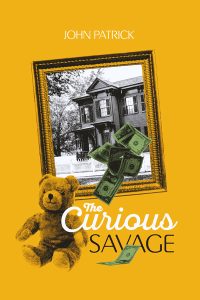
Mrs. Savage has been left ten million dollars by her husband and wants to make the best use of it, in spite of her grown-up stepchildren’s efforts to get their hands on it. Knowing that the widow’s wealth is now in negotiable securities, and seeing they cannot get hold of the fortune, the stepchildren commit her to a sanatorium hoping to “bring her to her senses.” In the sanatorium Mrs. Savage meets various social misfits, men and women who just cannot adjust themselves to life, people who need the help Mrs. Savage can provide. In getting to know them, she realizes that she will find happiness with them and plans to spend the rest of her life as one of them. But when the doctor tells her there is no reason why she should remain, she hesitates to go out into a hard world where people seem ready to do anything for money. The self-seeking stepchildren are driven to distraction by their vain efforts to browbeat Mrs. Savage, but she preserves her equanimity and leads them on a merry chase. At last her friends conspire to get rid of her stepchildren, and through their simple belief in the justice of her cause, they enable Mrs. Savage to carry out her plans to establish a fund to help others realize their hopes and dreams. The dominant mood is high comedy, and the audience is left with a feeling that the neglected virtues of kindness and affection have not been entirely lost in a world that seems at times motivated only by greed and dishonesty.
Frankie and Johnny in the Clair de Lune by
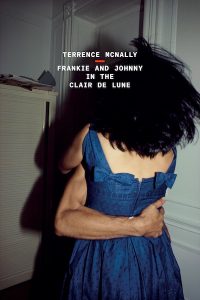
The setting is a walk-up apartment on Manhattan’s West Side where, as the curtain rises, Frankie (a waitress) and Johnny (a short-order cook who works in the same restaurant) are discovered in bed. It is their first encounter, after having met several weeks ago on the job, and Frankie is hopeful that Johnny will now put on his clothes and depart, so she can return to her usual routine of watching TV and eating ice cream. But Johnny, a compulsive talker (and romantic), has other ideas. He is convinced that he loves Frankie, a notion that she, at first, considers to be ridiculous. She has had more disappointments than delights in life, and he is the veteran of one broken marriage already. And neither of them is in the bloom of youth. Yet out of their sometimes touching, sometimes hilarious interplay the promise of a relationship beyond a “one-night stand” does begin to emerge and, as the lights dim, the two are back in bed again, but this time side-by-side, holding hands before the glowing television screen.
It’s Only a Play by
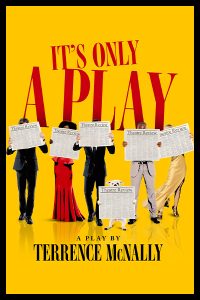
It’s the opening night of The Golden Egg on Broadway, and the wealthy producer Julia Budder is throwing a lavish party in her lavish Manhattan townhouse. Downstairs the celebrities are pouring in, but the real action is upstairs in the bedroom, where a group of insiders have staked themselves out to await the reviews. The group includes the excitable playwright; the possibly unstable wunderkind director; the pill-popping leading lady, treading the boards after becoming infamous in Hollywood; and the playwright’s best friend, for whom the play was written but who passed up this production for a television series. Add to this a drama critic who’s panned the playwright in the past and a new-in-town aspiring singer, and you have a prime recipe for the narcissism, ambition, childishness, and just plain irrationality that infuse the theatre—and for comedy. But don’t worry: This play is sure to be the hit they have all been hoping for.
Love! Valour! Compassion! by

Winner of the 1995 Tony Award® for Best Play
At a beautiful Dutchess County farmhouse, eight men hash out their passions, resentments, and fears over the course of three summer weekends. There’s Perry and Arthur, a professional couple of long standing, whose relationship, while strained, always manages to settle into the loving routine of a couple grown too familiar with one another, but happily so. The owner of the summer house, Gregory, is an aging choreographer who dotes on his younger lover, Bobby, who is blind. Their relationship seems solid, until an irresistible dancer, Ramon, callously flaunts his sex appeal and manages to seduce Bobby on the first night in the house. Trying to keep Ramon to himself is John Jeckyll, a soured ex-patriot Brit with a taste for melodrama—and cruelty. John rankles everyone around him, speaking the unspeakable in haughty nonchalance while probing the weaknesses of the others. The painful truth about his ire eventually becomes clear when he has to take care of his terminally ill twin brother, James. Unlike John, James inspires nothing but affection in those around him, and here lies both the crux of John’s complaint and the source of one of the play’s most blistering and revealing of monologues about the related questions of gay identity and self-esteem. Finally, there is Buzz, a maniacal lover of the musical theater. Like James, Buzz suffers from AIDS, and he has resigned himself to a life of humorous anecdotes and comforting trivia. Strange things can happen, though, and against all odds, Buzz finds himself falling in love for what may be one last summer.
Master Class by
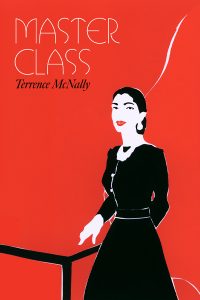
Winner of the 1996 Tony Award® for Best Play
Maria Callas is teaching a master class in front of an audience: us. She’s glamorous, commanding, larger than life—and drop-dead funny. Callas’ first “victim” is Sophie, a ridiculous, overly perky soprano. Sophie chooses to sing one of the most difficult arias, the sleepwalking scene from La sonnambula—an aria that Callas made famous. Before the girl sings a note, Callas stops her—and now what has started out as a class becomes a platform for Callas. She glories in her own career, dabbles in opera dish, and flat-out seduces the audience. But with that, there are plenty of laughs going on, especially between Callas and the audience. The next two sessions repeat the same dynamic: The middle session is with a tenor, who moves Callas to tears. She again enters her memories, and we learn about Callas’ affair with Aristotle Onassis; an abortion she was forced to have; her first elderly husband whom she left; her early days as an ugly duckling; the fierce hatred of her rivals; and the unforgiving press that savaged her at first. Finally, we meet Sharon, another soprano— the young singer has talent, but Callas tells her to stick to flimsy roles. Sharon is devastated and rushes out of the hall, and Callas brings the class to a close by acknowledging the sacrifices we must make in the name of art.
Mothers and Sons by
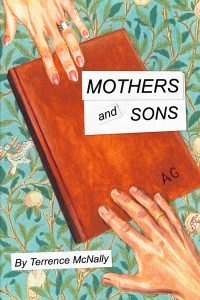
At turns funny and powerful, Mothers and Sons portrays a woman who pays an unexpected visit to the New York apartment of her late son’s partner, who is now married to another man and has a young son. Challenged to face how society has changed around her, generations collide as she revisits the past and begins to see the life her son might have led.
Musicals
Hooked on the 70s; Written by James A. Rocco and Albert Evans

This smash Off-Broadway hit is a virtual jukebox of your favorite ’70s hits!
An outrageous, mind-blowing dash through the “Me Decade”! Featuring over 40 hit songs, Hooked on the 70s is filled with enough music and comedy sketches to make your bell bottoms burst.
Honky Tonk Angels Holiday Hoedown; Written by Ted Swindley
This holiday companion musical to the hugely popular show Honky Tonk Angels continues the comic escapades of three, beloved good ole country gals as they reunite for a Christmas show at the Hillbilly Heaven Club in Nashville. But with Angela ready to give birth at any moment, Sue-Ellen’s colleague Charliee Chess steps in to help keep the trio’s mellifluous magic intact. With the holiday spirit in full force and a little bit of charming family drama complicating the concert, audiences will delight in a Motown Christmas medley, country classics like “Coat of Many Colors” by Dolly Parton and comedy hits such as “Grandma Got Run Over by a Reindeer.”
The Best Nativity Musical Ever (UK Exclusive); Book and Lyrics by Jahnna Beecham, Music and Lyrics by Malcolm Hillgartner
The Herdmans are the worst kids in the history of the world–so when they crash Sunday school and demand parts in the Nativity musical, the whole town panics. There’s not supposed to be biting or cigar-smoking in Bethlehem, and while these kids have never even heard the Nativity story, they definitely have rewrites! Soon, everyone is calling for reluctant director Grace Bradley to cancel the whole thing. It’s up to the Bradleys and the Reverend to help their community see the Nativity story and the Herdman kids through new eyes in this buoyant musical adaptation of the funny and touching holiday classic.

